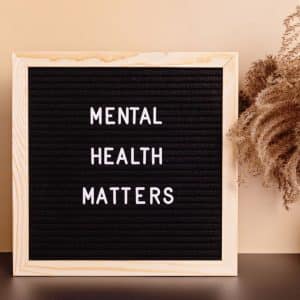When hearing tough news regarding your health, your first impulse may be to reach out to your close family and friends for support. You want a shoulder to cry on, or someone to acknowledge and empathize with the difficult news you just received. Instead, they tell you that “everything is going to be okay” and to “get better soon.” But what if you can’t get better soon? What if it doesn’t quite feel like everything is going to be ok?
These phrases are used when people don’t know what to say yet genuinely hope that you will recover and move on quickly. The intention is good, but these statements can feel hurtful to hear. This response is an example of toxic positivity because it’s putting a positive spin on something that doesn’t feel positive to the person experiencing it.
What We Hear vs. What We Need
Patients often hear things that are meant to be well-intentioned but in fact, they are dismissive and based on the friend or family member feeling better and not the patient. Oftentimes, the supportive person struggles to feel empathy which leads to their misplaced reaction. Or, many people are uncomfortable talking about sad or painful topics, so they often dismiss the pain and sadness by saying things like “everything happens for a reason” or “stay positive.” Since they have not gone through the same pain or illness that the patient is going through, they simply cannot imagine what the situation might be like and are quick to brush it off. Common reactions are to try to fix or deny, when what the patient really needs is the exact opposite: they need to be seen and validated.
Other things that patients often hear: “Why don’t you see my doctor? Have you tried this supplement? Have you tried cutting out dairy? Have you done acupuncture?” Again, all of this is well-intentioned but unless someone is explicitly asking for medical advice, it is unsolicited. They don’t need advice. They need support. A listening ear. A cup of tea. A text to check in and see how their pain has been lately. They need to be seen. They need to be held. They need to be acknowledged. But so many dismiss pain, sadness, suffering, and grief. This leaves others who are struggling with these emotions not only hurting on the inside but also feeling excluded and left behind by their peers and loved ones. This can be like pouring salt on the wound.
“We need to dispel the myth that empathy is ‘walking in someone else’s shoes. Rather than walking in your shoes, I need to learn how to listen to the story you tell about what it’s like in your shoes and believe you even when it doesn’t match my experiences”- Brene Brown
Embrace Emotional Wellness
It is important for patients who are experiencing health challenges to set themselves up for emotional wellness. Emotional wellness during a health challenge is entirely different from emotional wellness when your health is in good working order. Emotional challenges are more like a rainy day so it makes sense that you would not have a sunny day disposition. It wouldn’t follow logical thinking if you laid out at the beach on a rainy day. When people are told to “stay positive”, it’s like telling someone during the rain to pretend that it’s sunny. Instead of emotionally gaslighting, what that person needs to do is respond to the rain and not just pretend that it’s sunny outside. Depression and anxiety amidst a health challenge are natural and normal reactions.
The goal should not be to deny any feelings that come up during a difficult situation regarding one’s health, but instead to interpret those feelings as cues that there are changes we need to make. If we can view our emotions as our bodies’ calls to action, we can take actions that will not only help us to feel better physically but also allow us to move through and process our emotions more effectively. This is a much different approach from just “staying positive” because it acknowledges the truth about how we feel, whereas living in denial will be less likely to inspire us to create new routines to transform our lives.
How to Ask Friends and Family for Support
Friends and family can mean to be supportive, but there are some things you can do to make this go more smoothly:
- Be picky regarding who you talk to. It’s important to only share with people you feel emotionally safe with since people may accidentally say uneducated and unsupportive things.
- Possible sentence to friends: “I know you intend to be helpful but right now this conversation feels more draining than helpful. Is it possible you can help me in this other way instead?”
- When you do talk to people about your challenge, be very clear about what you’d like from them. For example, “I want to talk to you about this challenge I’m going through but when I speak about it I feel very vulnerable. I’d love it if you could:
- Show empathy
- Support me by checking in
- Don’t offer unsolicited advice
- Don’t ask too many questions about my situation (this can cause patients to feel more overwhelmed than supported)
How Friends/Family Members Can Give Support
- Validate their experience. An example of this is, “Wow that sounds hard for you. I’m here for you during this tough time. You can be honest with me and I’ll be here to support you and get through this with you.”
- Continue being their friend. Talk to them about their hobbies, take them out, or binge-watch a Netflix show together. They are more than their diagnosis and normal activities can help them in their time of healing.
- Offer to help and ask them which way they would prefer for you to help:
- Check in over text
- Talk once a week
- Send a small gift
- Provide childcare
- Drop off food
- Figure out your own creative way to show you care
Health challenges are difficult to face alone, and the support of friends and family can make the worst days a little better. While most mean nothing but encouragement, a little extra direction will ensure they’re being helpful rather than hurtful when you need to lean on them for support.




Leave a Reply